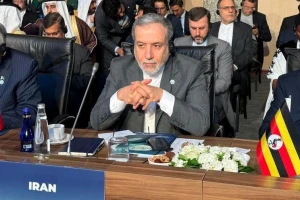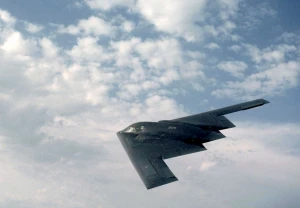Snapback sanctions on Iran to be triggered by end of August if no nuclear deal is reached, US & European allies agree
Trumps says ‘in no rush to talk’ with Iran after ‘obliterating’ the Islamic Republic’s nuclear sites

U.S. Secretary of State Marco Rubio conducted a phone call on Monday with the foreign ministers of Germany, France, and the U.K., in which it was agreed to set a deadline for a nuclear deal with Iran at the end of August, Axios reports.
If no deal is reached by the deadline, European countries plan to activate “snapback” sanctions on the Islamic Republic, which were lifted under the 2015 Joint Comprehensive Plan of Action (JCPOA).
On Tuesday, French Foreign Minister Jean-Noel Barrot affirmed that his country would join Germany and the U.K. in enacting the “snapback” mechanism. Barrot said the E3 group is “justified in reapplying global embargoes on arms, banks, and nuclear equipment that were lifted 10 years ago. Without a firm, tangible, and verifiable commitment from Iran, we will do so by the end of August at the latest.”
“It's a fact: Iran violated the obligations it took 10 years ago during negotiations,” Barrot said before a meeting with European Union (EU) foreign ministers in Brussels.
The August deadline provides time for the U.S. and the E3 countries to pressure Iran into cooperating on its nuclear program. The snapback mechanism is part of the 2015 JCPOA, and prevents UN Security Council members, such as Russia or China, from vetoing the sanctions, as it reimposes sanctions already agreed upon in the council.
It works by mandating the reinstatement of six UN resolutions on Iran.
The deadline for reimposing sanctions under the UN resolution that ratified the JCPOA is Oct. 18. However, according to Axios, the E3 nations want to see the snapback mechanism activated before Russia assumes the presidency of the UN Security Council in October. The snapback mechanism takes 30 days to reactivate the sanctions.
The E3 nations will reportedly begin reaching out to Iran in the coming days to seek a resolution. Axios reported that the Europeans plan to tell Iran it can avoid the snapback mechanism if it takes certain steps to convince the world of its [peaceful] nuclear intentions.
The three nations are reportedly demanding the return of inspectors from the UN’s International Atomic Energy Agency, who were expelled by Iran following the 12-day war with Israel, along with the removal of the 400 kg (882 pounds) of highly enriched uranium from the nuclear sites struck by Israel and the U.S.
In May, Iran’s Foreign Minister Abbas Araghchi had previously warned that triggering the snapback could lead to “an escalation of tensions that could become irreversible.”
“Iran has made its position clear. We have officially warned all JCPOA (nuclear pact) signatories that abuse of the snapback mechanism will lead to consequences – not only the end of Europe's role in the agreement, but also an escalation of tensions that could become irreversible,” Araghchi wrote at that time in an op-ed in Le Point.
Araghchi repeated that warning over the weekend, saying, “One of the big mistakes of the Europeans is that they think that the ‘snapback’ tool in their hands gives them the power to act on the Iranian nuclear issue, while this is a completely wrong perception. If these countries move towards snapback, they will make the resolution of the Iranian nuclear issue even more complicated and difficult.”
Meanwhile, U.S. President Donald Trump said that Iran would like to hold discussions, but that he is in “no rush” to talk with them.
“They would like to talk. I’m in no rush to talk because we obliterated their site,” Trump told reporters in Washington on Tuesday.

The All Israel News Staff is a team of journalists in Israel.
You might also like to read this:










